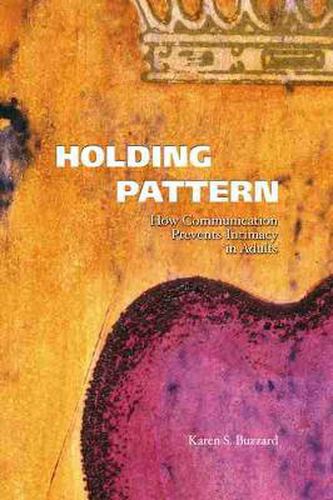Readings Newsletter
Become a Readings Member to make your shopping experience even easier.
Sign in or sign up for free!
You’re not far away from qualifying for FREE standard shipping within Australia
You’ve qualified for FREE standard shipping within Australia
The cart is loading…






Holding Pattern examines the chronically single - the midlife adult who has failed to find the intimacy he or she seeks. Karen Buzzard, noted communication scholar, illuminates how human communication styles influence our capacity for intimacy, tracing the roots of adult miscommunications to three critical stages of development that are crucial in shaping our ability to communicate intimately. Buzzard offers a new and strong theoretical paradigm for intimacy, which does not assume, as does the older paradigm, that intimacy is a process that unfolds naturally and automatically. She develops the critical paradigms of affectional, ethical and authentic communication and explains these patterns through interpretative readings of the life history of individuals, providing a framework for understanding midlife intimacy problems.
Using psychological theories of life history analysis, she arrives at a novel picture of how our intimacy styles are shaped. Her case studies are remarkable in demonstrating how the achievement of intimacy involves a crucial shift of direction as we progress from childhood to adulthood.
$9.00 standard shipping within Australia
FREE standard shipping within Australia for orders over $100.00
Express & International shipping calculated at checkout
Holding Pattern examines the chronically single - the midlife adult who has failed to find the intimacy he or she seeks. Karen Buzzard, noted communication scholar, illuminates how human communication styles influence our capacity for intimacy, tracing the roots of adult miscommunications to three critical stages of development that are crucial in shaping our ability to communicate intimately. Buzzard offers a new and strong theoretical paradigm for intimacy, which does not assume, as does the older paradigm, that intimacy is a process that unfolds naturally and automatically. She develops the critical paradigms of affectional, ethical and authentic communication and explains these patterns through interpretative readings of the life history of individuals, providing a framework for understanding midlife intimacy problems.
Using psychological theories of life history analysis, she arrives at a novel picture of how our intimacy styles are shaped. Her case studies are remarkable in demonstrating how the achievement of intimacy involves a crucial shift of direction as we progress from childhood to adulthood.